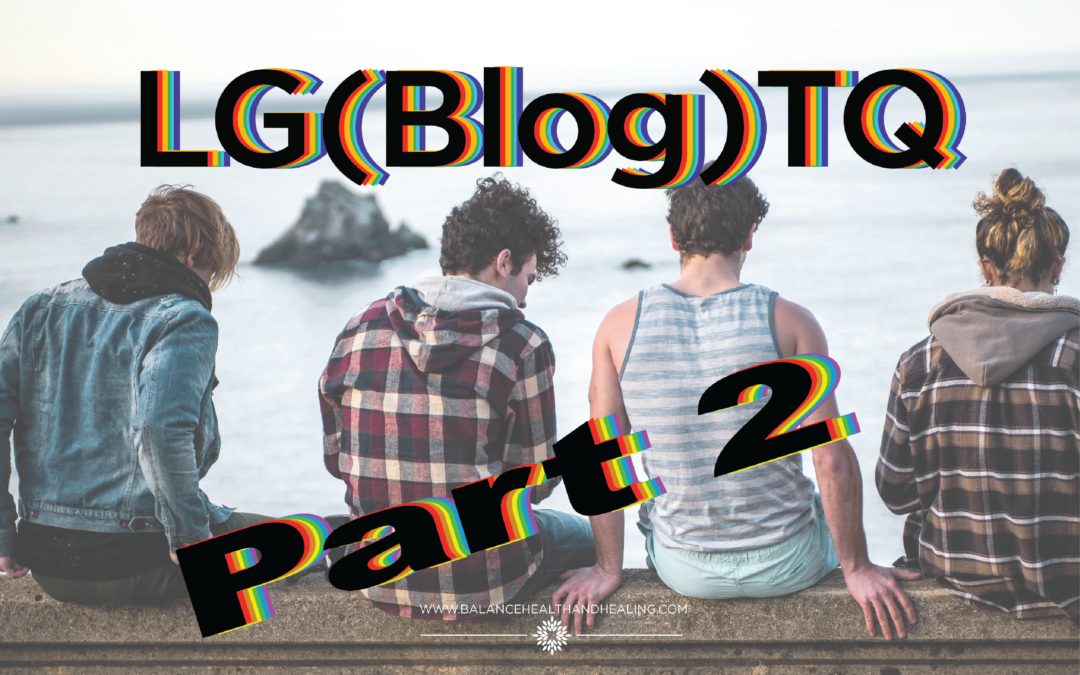Having a family member or member of your community who identifies as being part of the LGBTQ+ community might leave you feeling uneasy, unsure how to act, or even disapproving or avoidant. Is what you’re doing helping or hurting them? How can you be supportive without compromising your own values? This blog will hopefully give you some answers as to the best practices in promoting positive well-being and health for this community.
The majority of this information comes from the research of Dr. Caitlin Ryan and the Family Acceptance Project, which helps strengthen families with LGBTQ+ children by creating supportive and nurturing environments to protect from physical and emotional pain. The intention of this blog is to help families understand their LGBTQ+ youth, prepare families to deal with familial and societal challenges, and understand which behaviors increase and decrease their child’s wellbeing.
Behaviors that Harm:
- Any type of physical abuse, particularly as a result of the individual’s identity
- Verbal harassment or name calling (ex. Fag, homo, queer, abomination, etc.)
- Exclude the individual from family activities (ex. Reunions, weddings, family gatherings, etc.)
- Try to change their identity (research has shown that conversion therapy does not work, and in many cases is more harmful to their mental health)
- Restrict access to having LGBTQ+ friends (spending time with this community does not “turn you”)
- Restrict learning about the LGBTQ+ experience or available resources (being more informed does not “turn you”)
- Blame them for the harassment they receive as a result of their identity
- Pressure them to be more masculine or feminine
- Punish them or tell them that God will punish them as a result of their identity
- Express shame or that they are a shame/embarrassment to the family
- Not allowing them to talk about their experience with you or others
Behaviors that Help/Protect:
- Listen to and talk with your family member in a loving, patient, and compassionate way about their experience and identity.
- Ask how you can support them
- Express love, acceptance, and affection when they do “come out” to you.
- Be an advocate for them around others (ex. Discourage anti-gay sentiments from others, advocate for attendance at family gatherings, stand up for them when they are mistreated, etc.). Model and encourage them to advocate for themselves.
- Let them know you love them unconditionally
- Welcome their LGBTQ+ friends into your home
- Support how they express their gender
- Express hope and belief that they can have a happy future
- Help them value and love themselves
- Be open and honest about your own reactions and conflicts, but always from a place of love
Some Other Things that Correlate with Positive Mental Health Outcomes:
(Dehlin, Galiher, Bradshaw, & Crowell, 2015)
- Accepting their own LGBTQ+ identity
- Coming out (on their own terms and to those who are safe)
- Seeking spiritual acceptance as they are
- Rejecting efforts to change their identity
- Understanding the biological causes of their identity
Families have a huge impact on each other’s lives, especially children. When families are more supportive and implement these helpful behaviors, youth are more likely to report living happier lives, feel more connected to their family and church community, have higher self-esteem, and have greater hope for being a happy adult. Families that are less supportive and engage in more of the harmful behaviors lead to greater familial conflict and these members withdrawing from the family and their faith/religion. They also have a loss of hope for their future, fear getting thrown out of their home, have increased self-hate, feel more isolated and like they have to hide who they are, and are less likely to want to be parents themselves one day. Most importantly they are 8 times more likely to attempt suicide, 6 times more likely to have high levels of depression, 3 times more likely to turn to illegal drugs and 3 times more likely to be at a high risk for HIV or another sexually transmitted disease.
Most parents are not intentionally trying to hurt their children. On the contrary, you might be doing some of the harmful behaviors because you think it will protectthem! However, the research shows that these good intentions are actually counter-productive. For those who feel like this situation is hard to accept because of your personal values, consider the consequences to your family member when you are not supportive and think through which of the supportive behaviors above are and are not in opposition to your values and beliefs. Supporting your LGBTQ+ youth does not necessarily mean that you accept or condone the behaviors. It’s all about providing love and acceptance, making sure they still feel like a part of the family, have hope for their future, and have the greatest chance at a healthy life. As is the case with all things, let compassion, love, and understanding, rather than rejection, guide you in your interactions with others.
Some Resources:
There are MANY resources. Here are a couple to get you started:

